G20 summit: Russia sanctions 'undermine trade' - Putin
- Published
- comments
Mock-ups of world leaders dressed as life guards had one notable absentee, as Jon Donnison reports from Brisbane
Russian President Vladimir Putin has said that US and EU sanctions will harm not just Russia but the global economy.
He said, external the sanctions were a mistake, going against trade accords and only the UN had the right to impose them.
The sanctions were introduced over Russia's annexation of Ukraine's region of Crimea and its alleged involvement in eastern Ukraine.
Mr Putin was speaking ahead of the G20 summit in Brisbane, Australia, which is to focus mainly on promoting growth.
World leaders including Mr Putin, US President Barack Obama and Chinese President Xi Jinping are gathering for the two-day meeting.
Australian Prime Minister Tony Abbott said leaders would discuss job creation, identifying tax cheats and strengthening the global economy.
Campaigners also want climate change on the agenda, but Australia has been firm in keeping it off.
What is the point of the G20 summit? In 90 seconds
'Illegal and anti-trade'
In an interview for Russia's Itar-Tass news agency, Mr Putin said it would be "pointless" to raise the issue of sanctions at the summit but that he would talk about it if asked.
The sanctions were illegal and harming not only Russia but world trade, he added.
"This contradicts international law, because sanctions can only be imposed within the framework of the United Nations and its Security Council," he said.
Mr Putin added that the sanctions also went against the principles of the World Trade Organization (WTO), which the US had helped set up and was now grossly in breach of.
"This is harmful, and of course is doing us some damage, but it's harmful for them as well because, in essence, it's undermining the entire system of international economic relations," he continued.
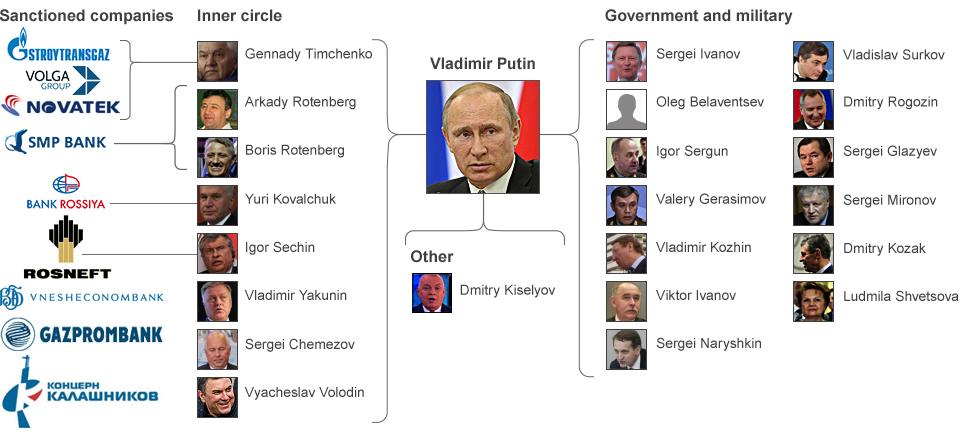
"I believe it's a mistake, even from the point of view of their geopolitical interests."
He said Russia - as an oil and gas producer with gold and currency reserves - could cope with the sanctions and would continue to meet its "social commitments".
Mr Putin also warned Germany that 300,000 jobs could be at risk if there were no contracts with Russia.
Russia's Interfax news agency quoted his spokesman, Dmitry Peskov, as saying the Russian president would meet German Chancellor Angela Merkel separately on the sidelines of the summit.
The BBC's Steve Rosenberg in Moscow says the sanctions have been putting increasing pressure on the Russian economy and on the national currency, as the rouble continues to weaken.
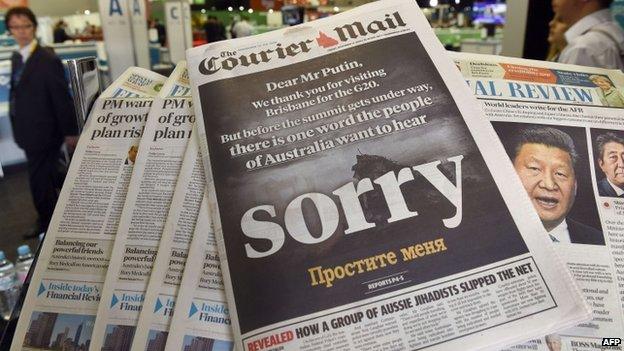
Many Australians accuse Mr Putin of being behind the downing of flight MH17
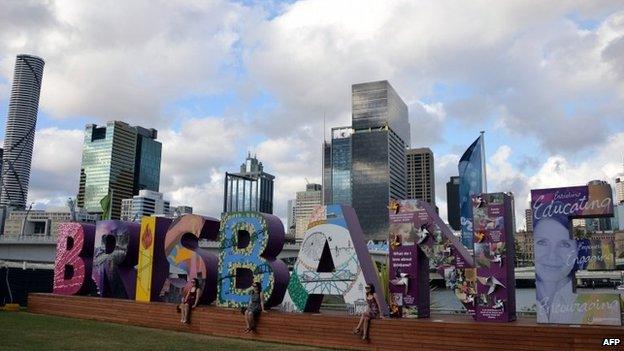
The Queensland city of Brisbane is hosting the two-day summit
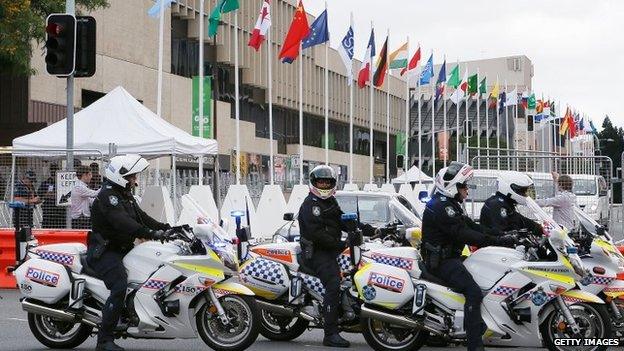
Security will be tight for the summit, with protests expected
The sanctions have been imposed in several rounds, beginning in March after Crimea's annexation, and include travel bans and asset freezes on certain individuals and businesses.
More were imposed following allegations that Russia was sending its soldiers to fight with separatist rebels in eastern Ukraine. The Kremlin denies the allegations.
More than 4,000 people have died in the conflict between Ukraine's military and pro-Russian rebels in the eastern Donetsk and Luhansk regions.
Mr Putin has also come under fire because of the alleged role of pro-Russian rebels in the downing of Malaysia Airlines flight MH17, with many Australians calling for him to be barred from the summit.
Thirty-eight Australians were among the 298 people who died when the plane was brought down over rebel-held eastern Ukraine, by a missile that the West believes was supplied by Russia. Russia rejects the claim.
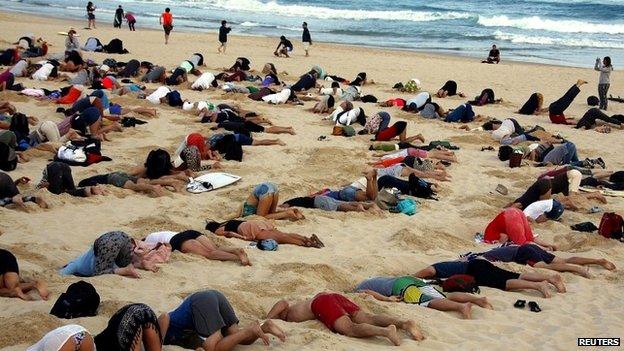
The protesters took to Sydney's Bondi Beach to make a statement about the global climate change debate
'Aggressive approach'
When the summit begins on Saturday, leaders are expected to expand on plans agreed in February at the G20 finance ministers' meeting to boost global economic growth by 2% in five years.
Tax avoidance by major multinationals will also be discussed, with Australian Treasurer Joe Hockey promising "very aggressive approaches".
However, Australia is facing criticism after failing to allow climate change on to the agenda and over its domestic policies on the issue.
On Thursday, more than 200 protesters buried their heads in the sand at Bondi Beach in a symbolic demonstration over climate change inaction.

What is G20?
The G20 summit will discuss world trade - as ever - but many other key subjects including Ebola appear missing.
The "Group of Twenty" represents two-thirds of the world's population, 85% of global GDP and over 75% of global trade
It began in 1999 as an annual meeting for finance ministers and central bank governors following the Asian financial crisis, before evolving to also include a summit for countries' leaders in 2008, after the global financial crisis
G20 meetings are aimed at deepening economic co-operation and strengthening the global economy
It comprises 19 countries and the European Union, external
At each meeting, the host country invites non-member guest countries to attend. For 2014, Australia has invited Spain, Mauritania, Myanmar, Senegal, New Zealand and Singapore
